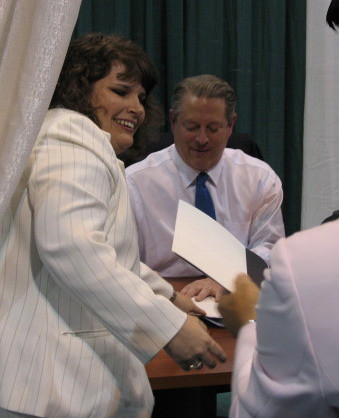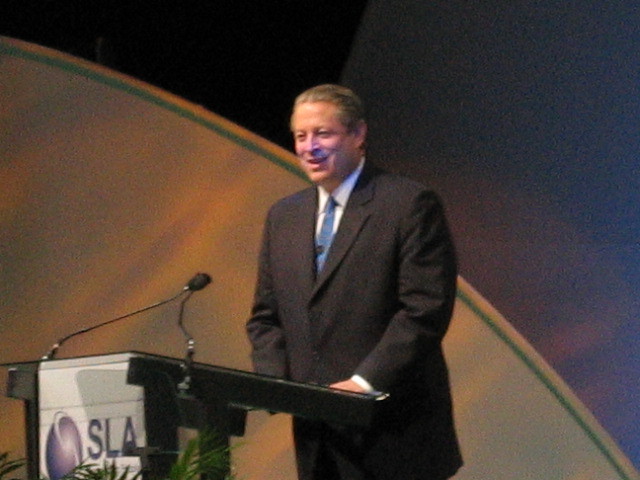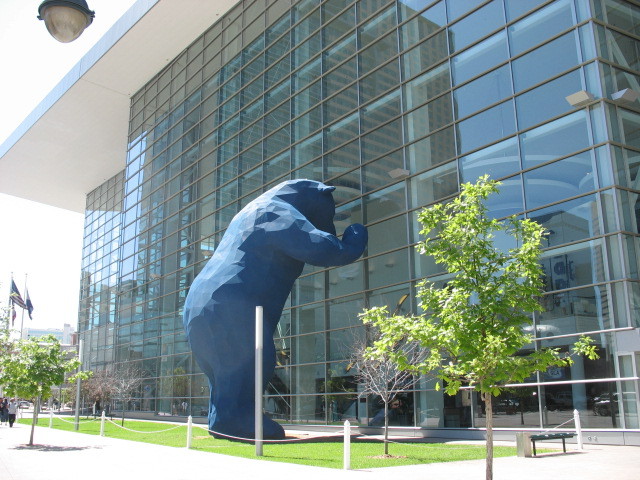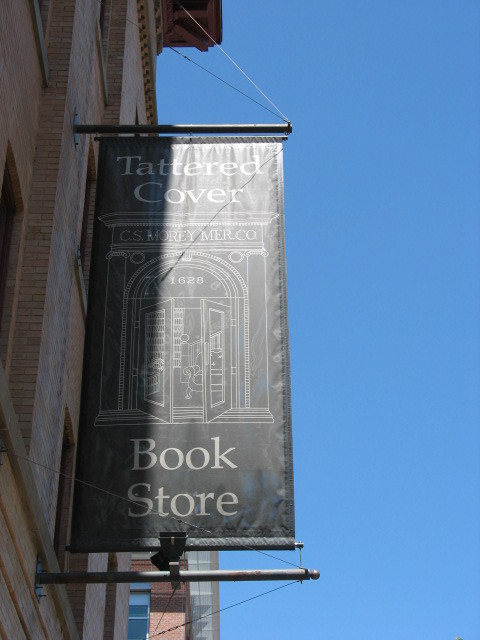I slept! Maybe 4 hours! Perhaps more! Joy!
SLA Public Policy Update
Issues -
Govt libraries closures: EPA, NTHSA reading room in DC and military libraries
Net neutrality
Internet governance
Orphan works and fair use
Amicus briefs SLA has contributed:
Grokster a huge success for libraries?
Fair Use
Net neutrality - Non-discrimination Act of 2006
WSIS and Internet Governance Forum - Janice LaChance was/is a member of the U.S. delegation
Broadcast flag - active on this front
CRS - SLA has sent a letter to Nancy Pelosi to make CRS Reports available (electronically) to the public
Q: has there been efforts to send librarians & info pros to Iraq? Janice - unfortunately, it's very hard and especially dangerous right now, but it's something to consider and work on as part of a dedicated rebuilding and recovery program.
Q: can we develop an info clearinghouse for now about current and future efforts in Iraq? That's a great idea ... Doug will talk to the suggesters
Q: can SLA help provide free/low-cost access to needed databases for Iraqi libraries? That is a great idea - will start talking w/ some vendors
EPA libraries update
Michael Flynn, Deputy Director, Office of Information Analysis and Access, EPA
"EPA libraries are alive and well and we intend to keep them that way for a long time to come ..."
Pressure to make material easily accessible
What we're doing, what we're not:
What we're doing -
Making things electronically available
Have doubled the number of documents that are digital/electronic
Closure of regional libraries to walk-in traffic; but there are still library services, such as document delivery, ILL, etc.
Responses to questions and concerns
What's true, what's false
"We are making no more changes in our library system while we're looking at our plan forward ..."
Document - Fiscal year 07 plan - will be revisited internally and then get input from important stakeholders
"We are working hard on the people's side ..."
A new manager(?) for EPA regional libraries - Debbie Balsamo
Digitization - 3rd party review of procedures and current practices
We are still developing a process for getting communication and input - may be setting up an advisory committee; also looking to get more involved in the federal community
Web presence - not a lot up now, but will be updating
"We are committed to improving access ..."
Woo hoo! - No plans to preclude Google caching/harvesting by the Internet Archive
EPA will be exhibiting at ALA, but won't be participating any session - plans to have a separate meeting in July to discuss what's going on at the EPA libraries
Copyright in the 21st Century
Moderator - Georgia Higley, Library of Congress
Speaker - Bill Burger, Copyright Clearance Center
Shifting paradigms - Internet use, content creation, technological and business innovation, the one-to-many model has broken down, content/software inextricably linked into tools of knowledge
Info about CCC
Copyright - U.S. Constitution, Art. I, Sec. 8
Statute of Anne - first copyright law in the world - 1710
"System to protect original works of authorship fixed in any tangible medium of expression, now known or later developed, from which they can be perceived, reproduced ..."
Elements: creativity, fixation (regardless of distribution), exclusive rights to bundle of publishing/performance activities, duration
Protects literary works, pictures, musical works, dramatic works, choreographic and pantomines, etc.
With certain exceptions, same rules apply to both digital and analog content
Major (c) cases for special libraries:
Lowry's Reports v. Legg Mason
American Geographical Union v. Texaco
Basic Books v. Kinko's
Academia generally has broader fair use rights and will use them more extensively, but corporations do have fair use rights, as well ...
Copyright is about the law AND about:
Social policy and the public interest
Social norms and behaviour
Technology and innovation
Business models and economic incentives
Political and economic interests
Content comes in many new formats: Wikipedia, Encyclopedia of Life (high quality info for free)
Technology makes the sharing easy: ex - ShareThis
Google's business depends on fair use
The Age of Participation - Over 70 mil blogs have been created btw. Mar 2003 and Mar 2007, numerous tools to integrate
Why do people create? For the cheddah' ... "No man but a blockhead has ever wrote except for money" - Samuel Johnson
A clash of cultures: Exh. A - YouTube
Often, many new web apps tend to infringe on the rights of content owners
Wolfgang's Vault - archive of Bill Graham's concert productions - recordings and ephemera - should artists care about the distribution of their concerts? (some have and sued, some haven't appeared to care)
Rise of alternatives - Creative Commons
Long Tail
The balance of power is shifting away from content owners/disseminators to content users - distribution of content has become more efficient over time
Cool "digital ethnography" video by Michael Wesch shown (prof. of anthropology)
What lies ahead
Info-rich environment
Living documents, not static ones
Participation and collaboration
Collaboration and copyright in the corp.
Corporate spending on content is significant
Content consumption is high
Content sharing is critical to collaboration
There is a huge copyright challenge
Info on rightsphere
Checking rights is a speedbump
Most employees want to do the right thing
More on rightsphere
Is DRM dead? Some people say ...



